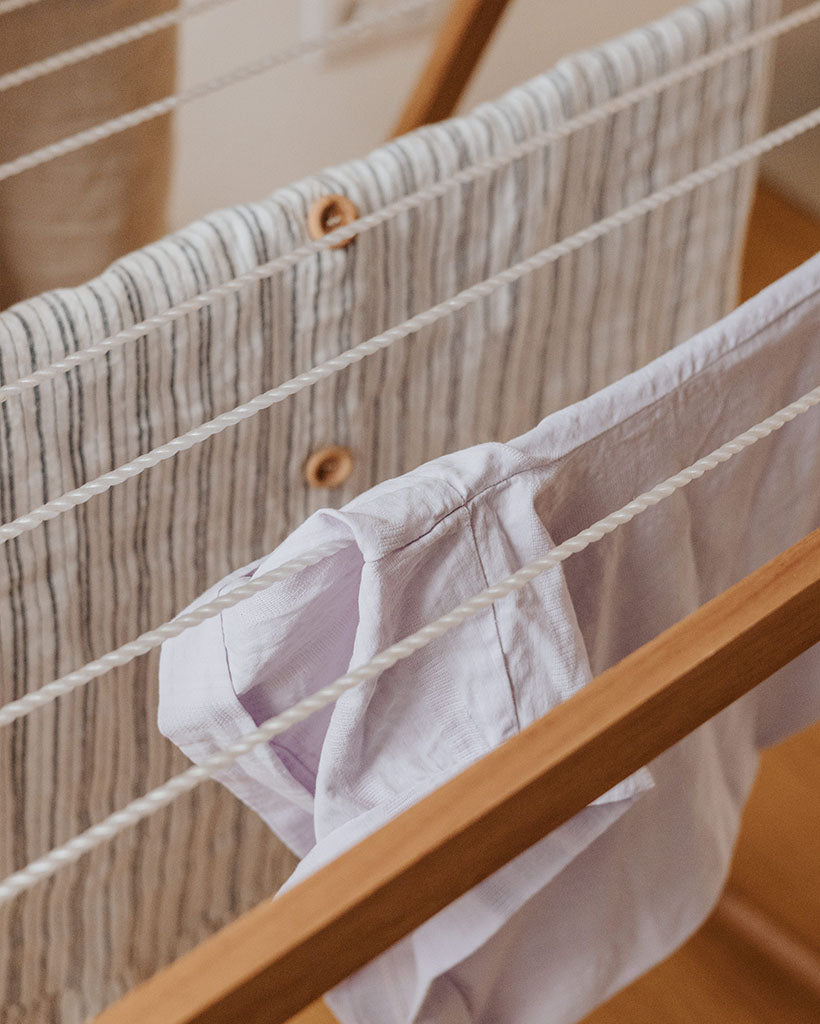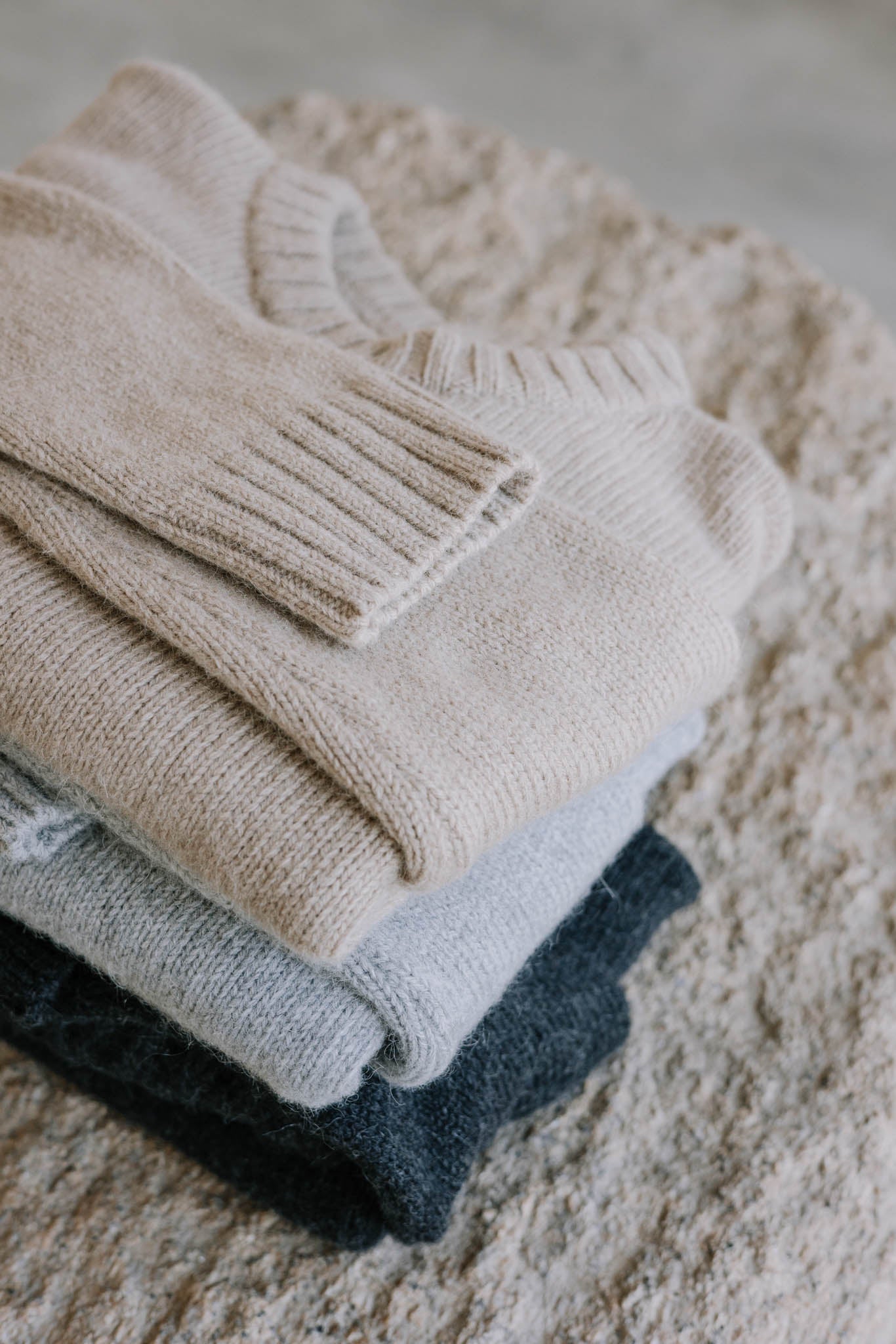Clothing Care Guide
Welcome to the most essential part of fashion
Surprisingly, the greatest environmental impact of a garment is not in its production, transport or disposal but in the way it's cared for.
The Golden Rules
Different care for different materials

Linen
Linen can be washed up to 40ºC, but we recommend you keep it at 30ºC or less. These garments are quick-drying and can be tumble-dried and ironed (when damp). However, as you may know, they're not wrinkle-resistant, which is part of their charm anyway.
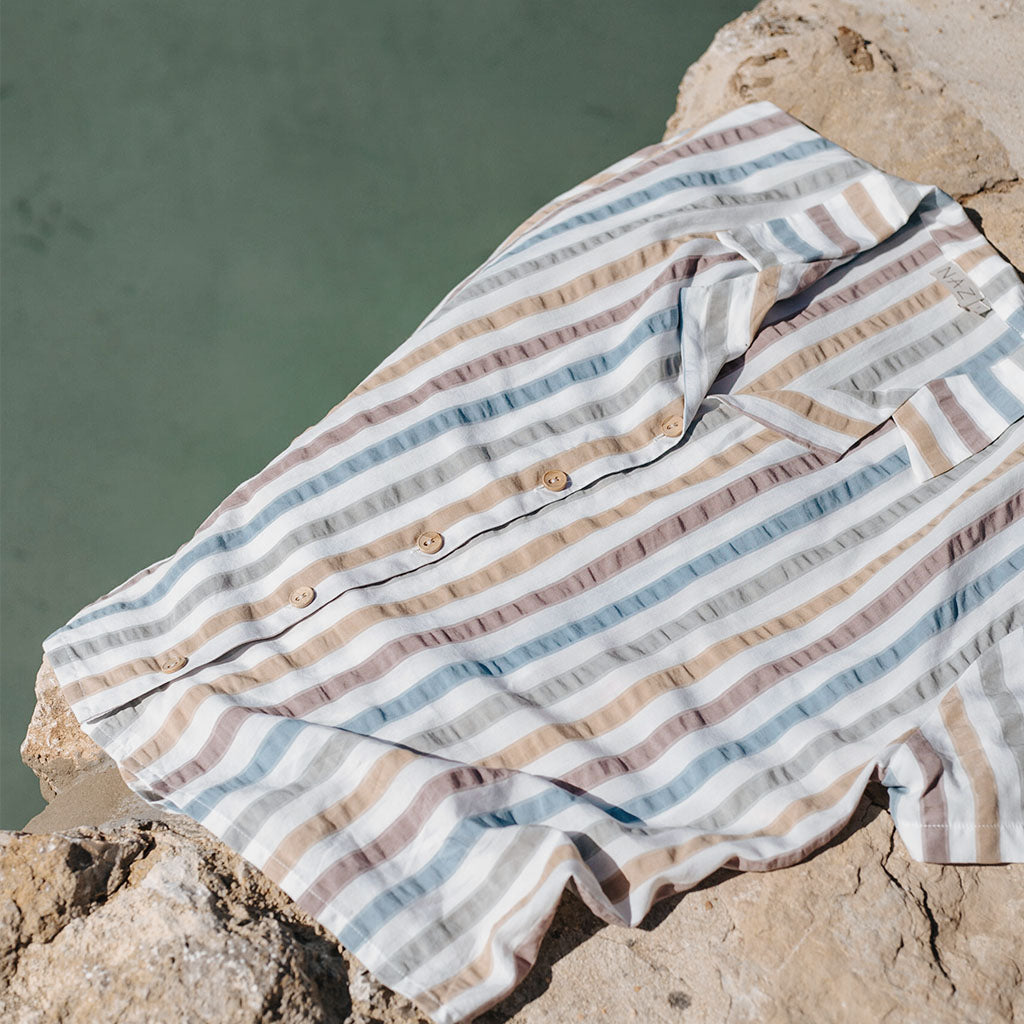
Tencel
Lyocell can be washed up to 40ºC and be tumble dried in low temperatures. We always recommend hanging dry on the shade to protect its color. When ironing, always do it with the garment inside-out.
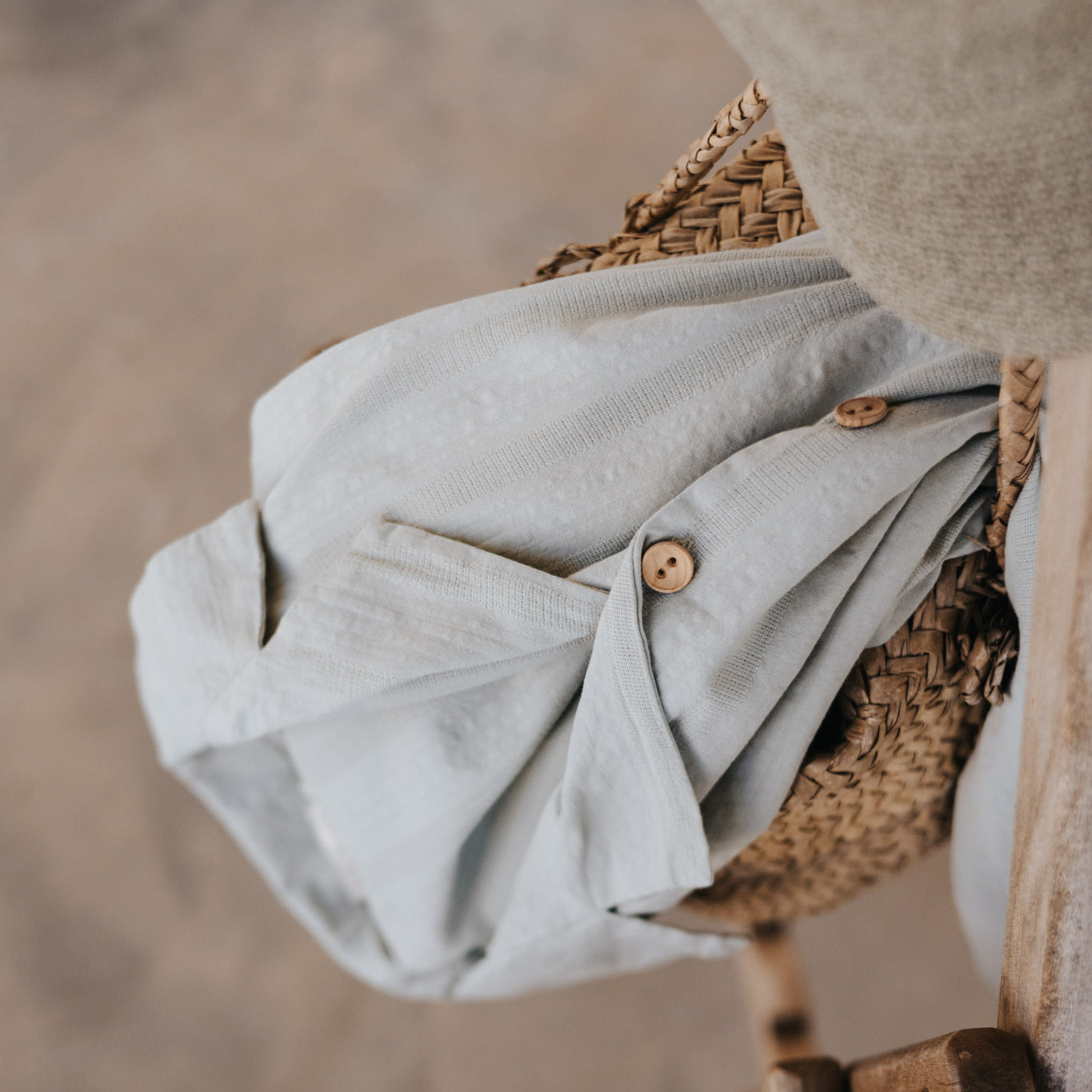
Cotton
Cotton items can be washed up to 40ºC when coloured, but remember the golden rule: keep it cool. Cotton garments dry slowly, so always keep them flat while doing it, so they don't lose their shape. Cotton can be ironed at high temperatures, but make sure that the piece is damp before doing it, ok?
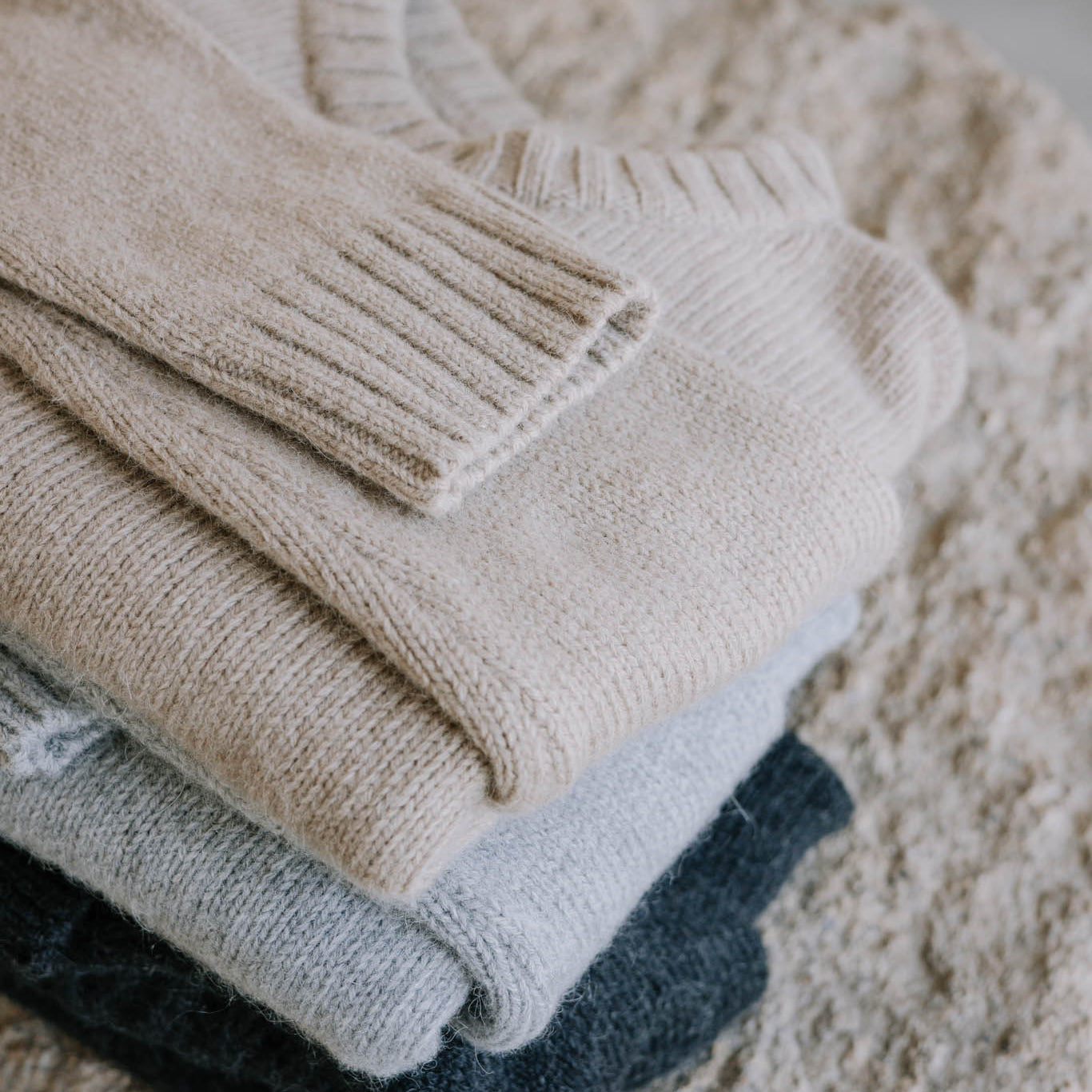
Wool
Rule #1: do not wash your wool garments every time you wear them, ok? Just hang it outside the house or in a damp bathroom, because wool cleans itself to some extent. When washing choose a gentle wool cycle and ditch the fabric softener. Always dry them flat, to maintain shape, outside (never tumbe dry).
Does it really makes a difference?
Yes, and we have just the right numbers to prove it!
More Questions?
You recommend using vinegar instead of fabric softener? Why?
Yes! Vinegar is a fantastic natural alternative to commercial fabric softeners. Here's why:
- Softening: Vinegar helps remove soap residue that can make clothes feel stiff.
- Cost-effective: Vinegar is very inexpensive compared to fabric softener.
- Eco-friendly: It's biodegradable and doesn't contain harsh chemicals found in some softeners.
- Reduces static cling: Helps to prevent clothes from clinging together.
How do I use vinegar in my laundry?
Simply add 1/2 cup of distilled white vinegar to your washing machine's fabric softener dispenser during the final rinse cycle.
How can I remove stains from clothes naturally?
Several household items can help remove stains:
- Percarbonate of soda: disinfects, removes stains (coffee, wine, blood), and whitens whites - all natural (salt, water, chalk)!
- Baking soda: Works well on grease and oil stains.
- Lemon juice: Effective on some food and drink stains, but use caution with delicate fabrics.
- Club soda: Helps to lift fresh stains.
What's the best way to dry my delicate clothes?
Always air-dry delicates. Lay them flat on a towel or use a drying rack to prevent stretching and damage. Avoid tumble drying unless the care label specifically indicates it's safe.
Can I prevent my color clothes from fading?
Here are a few tips to keep your darks looking their best:
- Wash inside out: This reduces surface friction that contributes to fading.
- Cold water: Use cold water for washes.
- Special detergent: Use detergent formulated for dark colors.
- Air dry: Avoid the dryer, which can contribute to fading and wear.
How often should I wash my clothes?
- Experts recommend washing clothes as infrequently as possible to preserve the fit and color. for things like jeans, sweaters,aim for every 5-10 wears, or when they become visibly soiled or smelly.
- For other garments like longsleeves and t-shirts, it will really depend on you, but most of them don't need to be washed after wearing one time!
- Spot clean stains in between washes.








